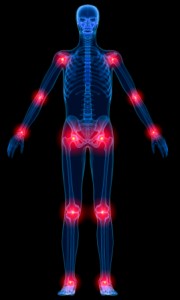 Exercise if good for you! Well yes we all know that but how do you take exercise when you suffer from chronic pain? This blog will give you a few tips and pointers on how to get fitter and not increase your pain at the same time.
Exercise if good for you! Well yes we all know that but how do you take exercise when you suffer from chronic pain? This blog will give you a few tips and pointers on how to get fitter and not increase your pain at the same time.
Exercise promotes general good health as well as weight loss which are important for people suffering from chronic medical conditions.
The key principle to keep in mind is that you want your activity to be “low impact”. This means that it will not harm your joints. This is vitally important for people with arthritis, fibromyalgia and osteoporosis. It also means that you are less likely to suffer from an ankle sprain or cartilage tear.
So what are some good types of low impact exercise which can be easily carried out by people who suffer from chronic or acute pain? Well here are a few:-
a) Walking. Pretty obvious and easy. All you need to do ii to step out of your front door. Oh yes and you don’t have to spend all that money of gym fees. Doctors often recommend a 20 minute walking session 5-6 times a week.
b) Yoga. This ancient Indian system of exercise is great for core strength and helps improve balance. It is often used by people with multiple sclerosis. We recently discussed this in a blog which you can read here https://patienttalk.org/?p=571
c) Cycling. Becoming more popular each year cycling is a great way to get fit and to do a bit of two wheeled sightseeing. You might think about cycling to work. A helmet is very much recommended especially if you live in London! See https://patienttalk.org/?p=109 for more information.
d) Pilates. Developed in the early years of the last century Pilates is great for back pain as it helps strengthen the spine as well as improve muscle strength.
e) Swimming. This low impact sport is great for both people with mobility issues and for those who suffer from obesity. You might also want to consider water aerobics.
f) Gardening. A bit of relaxed gardening is great way of dealing with stress and taking exercise at the same time.
It is worth mentioning that you should speak with a healthcare professional before embarking on any type of exercise regime.
Finally – what have we missed out? Please do use the comments box below to share with your fellow readers the kinds of exercise which have worked for you. Any links would be great as well.
Thanks in advance!



